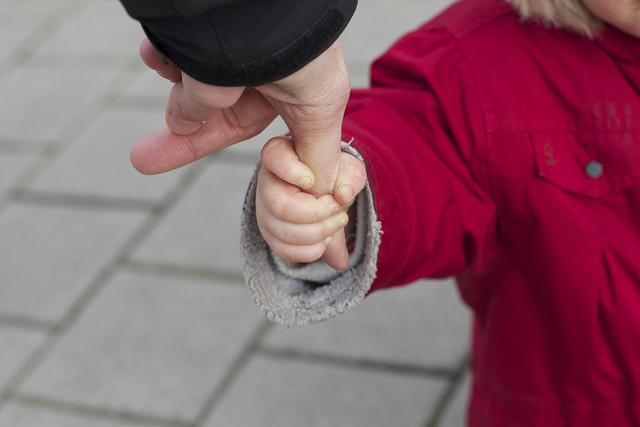I’m a parenting coach and I recently got this email.
Hello, Cecilia.
I want to find a better way to parent.
My trouble is actually making changes at home that feel so foreign to me. Mindful parenting is different from how I was raised in many ways, but also so different from the way society says we should be as parents. We are led to believe we must control our kids. Bad behavior should be harshly disciplined to prevent it from happening again. Consequences should be dished out for every bad behavior or mistake to “teach them a lesson.”
With both our son, when they were starting to test limits more, we started to respond with more rigidity, and impose more consequences to try and prevent undesirable behaviors. It didn’t help. And yet we thought, “Does he need more rules? More rewards? More punishment?” We have tried different approaches. All of which seemed to be short-term solutions.
Now we’ve discovered mindful parenting. I have been doing my best but sometimes I’m at a loss.
I find it hard to know what to do in a conflict.
When I am at a loss, how do I respond?
Sincerely,
Frustrated
Dear Frustrated,
First off, it’s not easy to look at ourselves and our parenting. The work you are doing takes a lot of courage, so I really acknowledge you for that.
To get you started here are 3 essential steps for anyone who desires to parent mindfully:
Take the long view
It’s astute of you to see that sometimes the things that we do with our kids are only short-term fixes. In order to be truly effective at anything–business, life, love, parenting –we have to look at the long-term.
Try asking yourself, “What do I want my kids to be like in 30 years?”
I’ve asked many parents this question. Invariably, they say things like, “confident, loving, creative, happy, resilient, considerate and understanding.”
Taking the long view is useful, even in the moments of not knowing exactly how something will work out, because it reminds us that we’re not just trying to get our kids to obey right now. We are doing something much more important.
We are raising little people who will one day be big people.
We are laying the foundation for the relationships that our children will have with other people (and with ourselves) as they grow up.
We are teaching our children today, the skills that they will need to be a good employee, a good boss, a trusted friend, a lover and maybe even a parent.
So how do you teach children to be a “loving, creative, happy, resilient, considerate and understanding employee, boss, friend, lover, or parent”?
Well, it’s complicated, but the two steps below are a great place to start, especially in a conflict.
Connect.
At the foundation of any relationship, whether in parenting, in friendship, or the workplace, is connection; understanding the other’s feelings and perspective.
When you’re at an impasse with a child, figure out what he is feeling and the reason for him to be feeling that way.
You can ask, “Are you feeling disappointed because you want to watch a video rather than go to bed?” If you guess incorrectly, the child will often let you know.
When kids, just like adults, hear that you are trying to understand them, rather than telling them that they are wrong or trying to get them to change, they feel comforted and are more likely to hear your perspective too.
Also figure out what you are feeling and the reason for you to feel the way you do. As you reflect you may discover, “Ah, I am feeling irritated because I was really looking forward to some ‘me time’ and now my son is not going to bed.”
Understanding each other’s feelings and perspective, especially in a conflict, is crucial to raising children who are good at relating to others.
Work toward win-win.
Together, brainstorm different solutions and come up with one that works for both of you.
It might mean that you and your son agree for him to watch 5 more minutes of videos, or you make a plan for him to watch a video tomorrow, or you discover that what he really wants is not a video per se, but a way to relax before bed, and that he doesn’t mind listening to a story instead, or maybe you explain to him your feelings and he says, “Mom, I’ll go to bed now. I see how important it is to you.”
Some parents worry that including a child in the problem solving process means “giving up” their power as parents. A win-win solution is not about ignoring your own life experience or wisdom. It’s about considering your child’s perspective, asking him to consider yours, and engaging both parties in coming up with solutions.
This is the same process that many adults go through to work out a conflict.
If a solution stops working, then check in with each other, figure out another solution together and try it out again.
Over time, children become cooperative and respectful, by being treated with cooperation and respect.
Respectfully yours,
Cecilia
~
Author: Cecilia Hilkey
Editor: Jean Weiss
Photo: Stephan Hochhaus/Flickr











Read 5 comments and reply